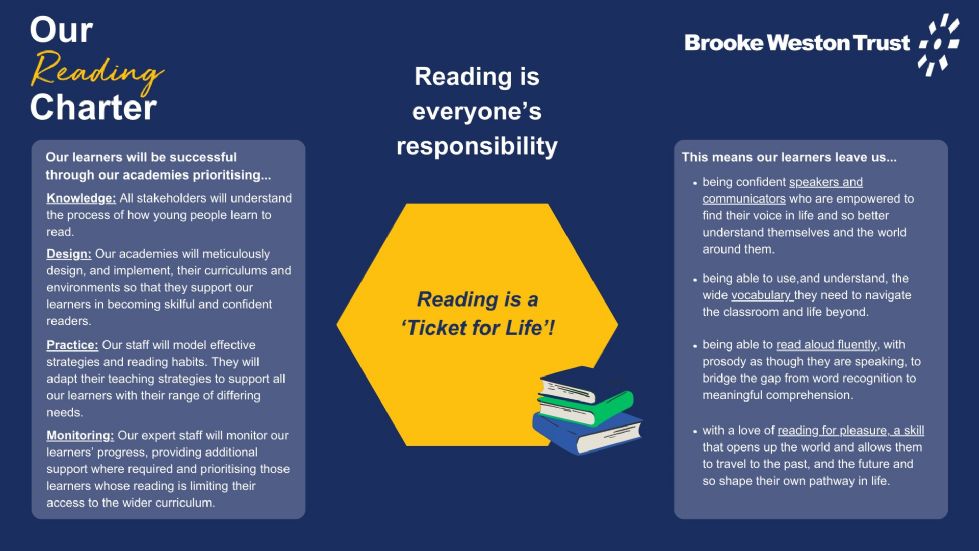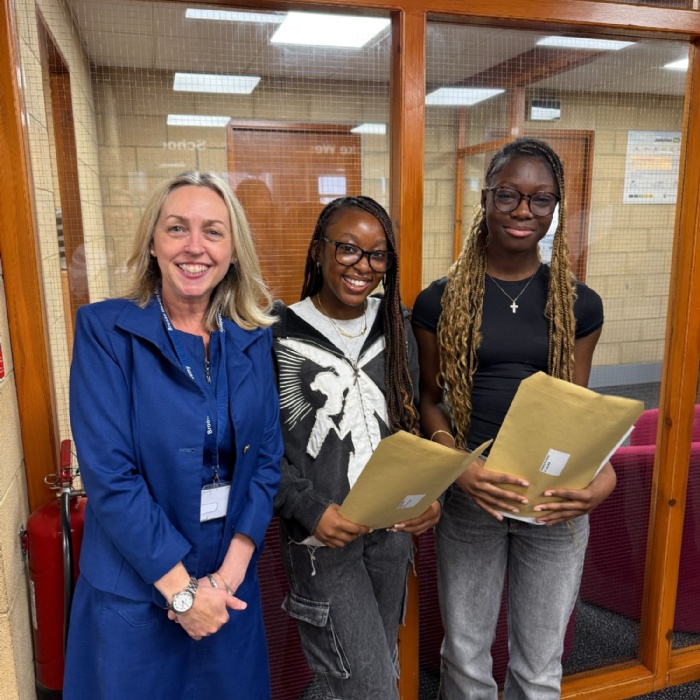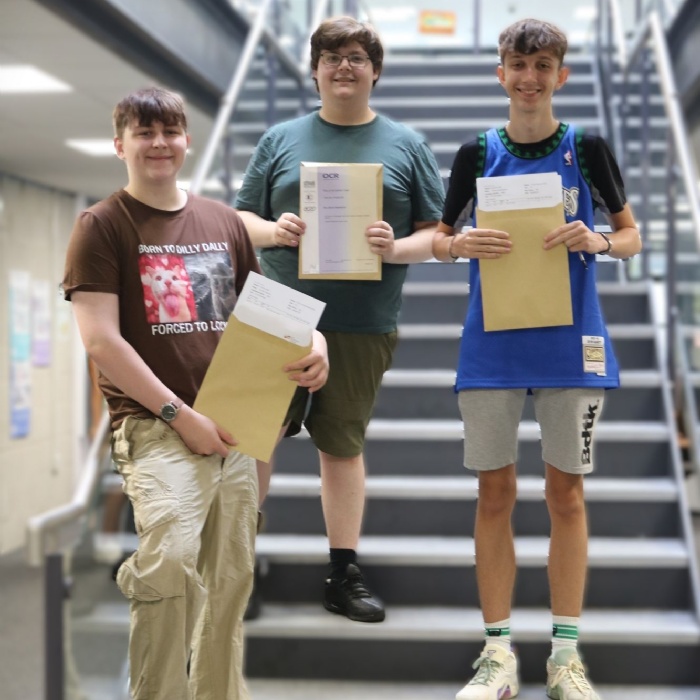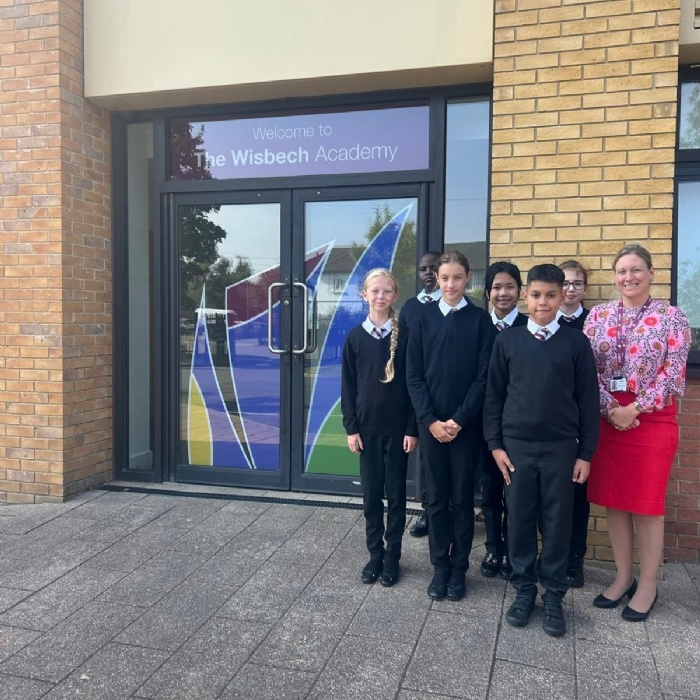How Brooke Weston Trust builds lifelong readers
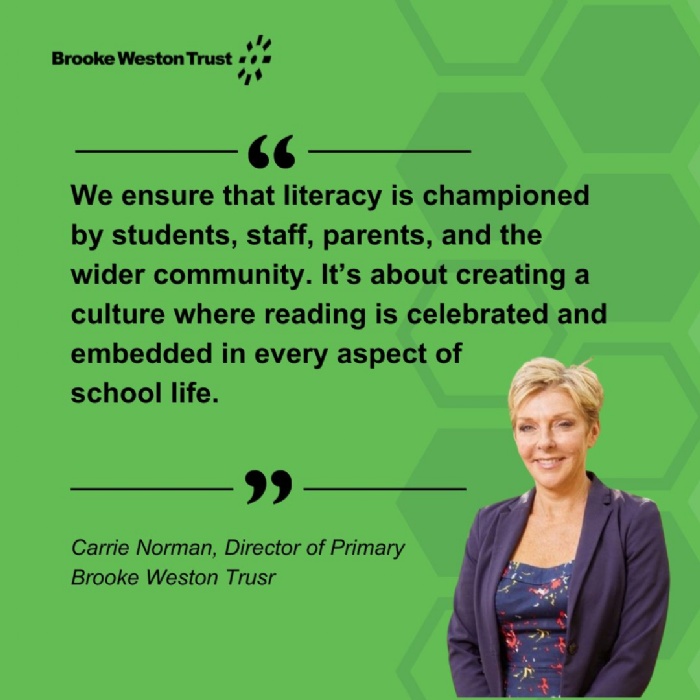
At Brooke Weston Trust, reading is more than a skill - it's a lifelong journey. Across our schools, we are united by a shared commitment to nurturing a love of reading in every child, ensuring literacy is at the heart of our educational ethos. This is embodied in our newly launched Reading Charter and a suite of evidence-informed strategies that support pupils from their very first books to the brink of adulthood, giving them tickets for life.
A Collaborative Vision: The Reading Charter
Our Reading Charter stands as a testament to our belief that reading is everyone’s responsibility. Crafted collaboratively by Literacy Leads from every phase (spanning ages 3 to 18), the Charter is more than a set of guidelines - it is a shared promise to place reading at the core of everything we do, developing creativity, empathy, and lifelong learning.
Carrie Norman, Director of Primary, explains: “The charter represents a collective vision. By bringing together expertise from across our Trust, we ensure that literacy is championed by students, staff, parents, and the wider community. It’s about creating a culture where reading is celebrated and embedded in every aspect of school life.”
Jayne McCallum, Director of School Improvement shares: “Reading doesn't just open books, it opens minds. When a child reads, they are not just decoding words, they're learning how to make sense of emotions, plot twists, characters' motivations and the world around them. In turn, this fuels empathy, creativity, and critical thinking, all of which are crucial for navigating life. Academically, reading is the gateway skill and, long-term, readers are often better problem solvers, decision - makers and lifelong learners. It's no coincidence that literacy strongly correlates with higher education outcomes, income and civic engagement.”
Developing a Reading Culture: ‘Ambition for All’
School Improvement Leads; Jayne McCallum and Nicole Andrews have been instrumental in shaping our Trust-wide approach.
“We are all on a journey to create lifelong readers by teaching pupils to read and develop a lifelong love of reading,” Nicole shares.
Inspired by the Open University’s ‘Reading for Pleasure’ project, our schools have reviewed and enriched their reading strategies. This journey led to the creation of ‘reading teachers’ - practitioners who model a passion for books and spark important conversations about literature.
A key element of our approach is the ‘Windows and Mirrors’ strategy. This ensures that every child can both see themselves reflected in the stories they read (‘Mirrors’) and be transported to new worlds and experiences (‘Windows’). To support this, every primary classroom is equipped with a mini-library of 50 recommended texts, spanning fiction, non-fiction, and poetry - carefully chosen to reflect the diversity of our communities and the breadth of human experience.
Our Secondary academies are also committed to cultivating a culture of reading. Reading is more than a skill for our learners; it’s a gateway to confidence, curiosity, and lifelong learning. We are creating time and space for students to read and to read what they love. We have academies where our sixth formers are supporting our younger learners with their reading; the older students have had training in the best reading fluency strategies to employ, and the confidence of their younger ‘reading buddies’ is clear to see.
Jayne’s personal reading journey helped shape her love of reading: “I was read to as a child, I was taken to the library as a child, and I saw my family engaged in reading as a child. There is no doubt that this was hugely influential, and my love of reading, language and talk led me to university and on into the teaching profession. This teaching role has allowed me to share my passion for reading with literally hundreds of young people, and this has been incredibly satisfying for me.”
Evidence-Informed Strategies: From Phonics to the Reading Canon
Our commitment to literacy starts early, with a robust phonics programme for our youngest learners. Over the past few years, reading leaders from across the Trust have aligned their approaches, meeting regularly to share best practice, analyse data, and ensure rapid support where needed.
Nicole highlights the importance of collaboration: “By working together, we can focus on both the data and the pedagogy. Every half term, reading leaders meet with a consultant to review our teaching and share insights across schools. This collaborative spirit is what drives our continuous improvement.”
We draw on the latest research, such as Christopher Such’s ‘The Art and Science of Teaching Primary Reading’, to inform our teaching. Our Reading Canon, structured around ‘The 5 Plagues of Reading’ (archaic language, non-linear time sequences, narratively complex books, figurative text, and resistant texts), is closely linked to our writing curriculum, ensuring that every child leaves Key Stage 2 reading at their chronological age.
For older pupils who need extra support, we have introduced the ‘Fresh Start’ intervention (a Read Write Inc. programme) which ensures that no learner is left behind, from primary through to secondary. The all-through approach in using Fresh Start has allowed teachers of all ages and phases to come together, immerse themselves in the latest training and support each other in their endeavours to support all our struggling readers.
Oracy: A game – changer in education.
As we move into our second year of working with our Trust Charter, we are committed to supporting every teacher in developing the oracy skills of all their learners. The power of oracy lies in its ability to unlock confidence, deepen learning and elevate equity. It’s not just about speaking well – it's about thinking well, listening deeply, and engaging meaningfully with others. And that’s why oracy is such a game-changer in education. Oracy drives academic success and social mobility; it strengthens relationships and a sense of belonging; it enhances cognitive development, and that is why we will be making it a focus of our work, across the Trust, from September onwards.
A Culture of Collective Responsibility
The launch of the Reading Charter marks a new chapter in our journey. It reinforces our belief that literacy is a collective responsibility, shared by everyone in our Trust. By embedding reading in our practices and policies, we are not only improving academic outcomes but also equipping our learners with the skills, confidence, and curiosity they need to thrive in life.
Carrie Norman sums up our ethos: “As we look to the future, our Reading Charter will guide us in driving innovation and embedding literacy into every corner of our schools. Together, we are building a legacy of lifelong readers.”
In summary:
“A reading charter can formalise a collective commitment to making reading and literacy a priority; and this is exactly what has happened across Brooke Weston Trust.” shares Jayne. “When Reading and Literacy become a shared value it raises educational performance. It strengthens consistency in teaching, increases engagement with high quality texts and embeds good reading habits. A reading charter such as ours embeds reading as a culture, not just a curriculum. A well-designed Charter also supports inclusive access to books for removing barriers for some children and families from more disadvantaged backgrounds.”
Brooke Weston Trust’s approach to literacy is defined by collaboration, evidence-based practice, and a deep-rooted belief in the transformative power of reading. Through shared vision, innovative strategies, and a culture of collective responsibility, we are ensuring that every child not only learns to read but learns to love reading… for life. Indeed, it is their ‘Ticket for Life’.
